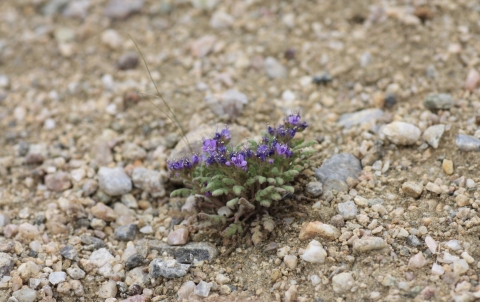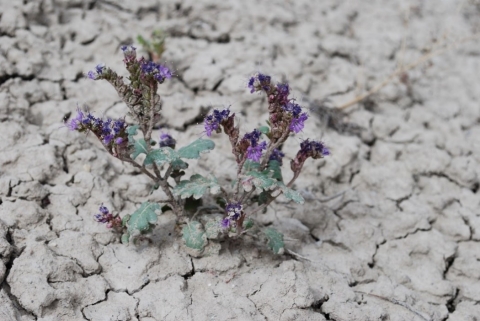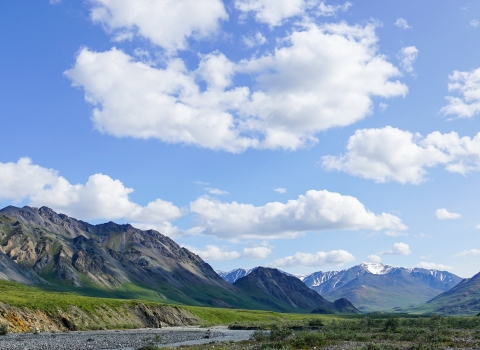DENVER — The U.S. Fish and Wildlife Service is announcing the proposed removal of the North Park phacelia (Phacelia formosula) from the list of threatened and endangered species due to advancements in recovery for this species. This action follows a thorough Species Status Assessment and a five-year review completed in 2021 revealing that this species is no longer in danger of extinction now or in the foreseeable future. The proposed rule is now available for public inspection, and the 60-day public comment period will be open March 19 through May 20, 2024 .
This striking, purple-flowering plant endemic to Colorado in Jackson, Larimer, and Grand counties has shown remarkable progress in population size and distribution since the original listing under the Endangered Species Act. This phacelia is a short-lived perennial plant that succeeds in sparsely vegetated, well-drained barren soils surrounded by sagebrush sagebrush
The western United States’ sagebrush country encompasses over 175 million acres of public and private lands. The sagebrush landscape provides many benefits to our rural economies and communities, and it serves as crucial habitat for a diversity of wildlife, including the iconic greater sage-grouse and over 350 other species.
Learn more about sagebrush habitat at approximately 7,500 to 8,300 feet. At the time of listing as endangered in 1982, the population was recorded at 2,760 plants across just two populations, thought to be threatened primarily by off-highway vehicle use, livestock grazing, and potential energy development.
In 2022, these numbers soared to more than 23,000 plants across 12 populations. This surge in numbers is attributed to a combination of improved surveys, taxonomic revisions, and targeted recovery efforts, including habitat management and protection. These proactive measures, supported by federal, state, and NGO partners, have played a crucial role in securing the species' future.
More than 80% of the species' current range is on federal lands, allowing for long-term management for its conservation. The Bureau of Land Management now includes conservation measures addressing OHV, livestock grazing, and energy development in its management plans. Arapaho National Wildlife Refuge also continues to manage for the conservation of this species into the future. Additionally, The Nature Conservancy holds a private easement to protect this species on additional private land.
To ensure a secure future for the North Park phacelia, the Service and recovery partners have committed to a comprehensive post-delisting monitoring period of at least 10 years to continue assessing its status. Recovery partners at the BLM, Colorado Natural Heritage Program, University of Northern Colorado, and Colorado Natural Areas Program have been instrumental in researching, monitoring, and conserving this species.
The public may submit comments on this proposed action March 19 through May 20, 2024, on regulations.gov, Docket #: FWS–R6–ES–2023–0114.





